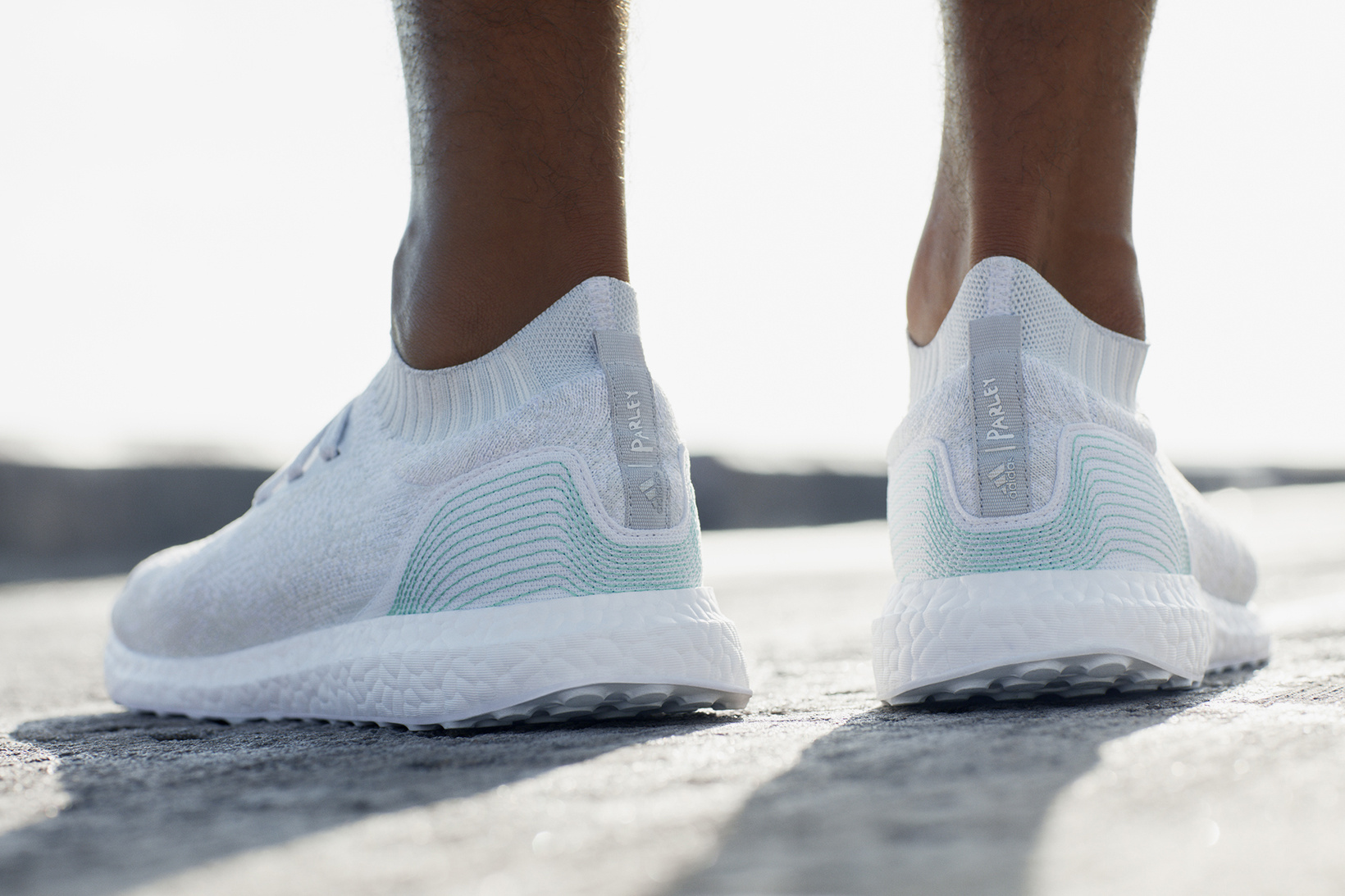(Photo from : i1.wp.com)
Can Green Business provide a profitable future for big name brands?
Adidas certainly seems to think so, and is pioneering a new wave of responsibly produced trainers using recycled plastic sourced from ocean waste. Growing public concern for the environment, combined with the renewed importance of corporate social responsibility, is forcing companies to take a step back and review their impact on the wider world. Having teamed up with the environmental organisation Parley for the Oceans in 2015, Adidas finally revealed their new UltraBOOST Uncaged Parley design at the start of June this year. Originally, 50 pairs were manufactured, to be earned, not purchased; to gain a pair, followers of the brand had to upload videos to Instagram, proving their dedication to eliminating single-use plastic items from their lives. Although the initial aim of the partnership project was to raise awareness of the growing threat pollution poses to our oceans, this innovative collaboration has created a viable alternative to current production methods using virgin plastic.
Intended production is rumoured to sky rocket in the next 12 months; 7,000 pairs of the new UltraBOOST x Parley collaboration design will be manufactured this year alone, with a further 1 million planned for 2017 production. The footwear combines a 3D printed midsole made from reclaimed ocean plastic, as well as a recycled polyester upper, embroidered with gill net dredged from the sea, instead of synthetic fibre. The success of this alternative cannot be underestimated: Eric Liedtke, an executive board member of the Adidas group, has already alluded to the future elimination of all virgin plastic from the Adidas supply chain, a process that will doubtless take time and entrepreneurial spirit.
Does this mean recycled plastic could be a permanent solution to the global pollution problem? Probably not. Although a step in the right direction, reclaimed ocean waste still promotes the use of plastic in material goods, albeit from a more socially responsible source. Although the Parley for the Oceans founder, Cyrill Gutsch, has remarked on the immediate success of the project, he is convinced that plastic is a “design failure” and its complete removal from product design is necessary. Gutsch considers plastic to be a “drug”; going cold turkey isn’t an option, but recycled plastic satisfies the immediate withdrawal symptoms society would suffer if virgin plastic use was eliminated completely. One thing is clear: plastic has to go.
Adidas may have another problem on its hands; although the company is moving with the ebb and flow of the changing tide, will these trainers be welcomed as iconic examples of innovative design, or rejected by customers who see recycled goods as inferior? Ultimately, consumers have the purchasing power to demand change. Whether they decide to put pressure on corporate businesses to use sustainable materials or not, could depend on whether they overcome the supposed stigma of recycled goods. Even if this stigma is challenged by the style and popularity of the Adidas brand, the hefty retail price of £178 per pair could hold back young buyers who are usually the innovators and drivers of change.
By Julia Constable

